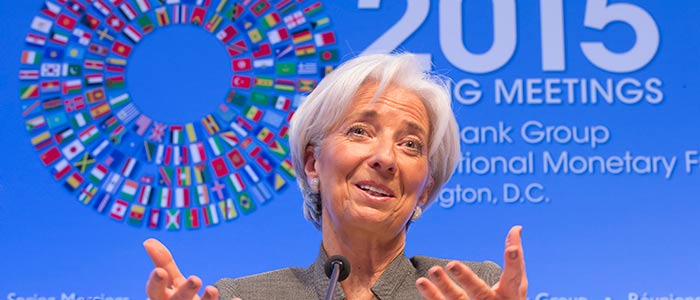WEb_IMF_ChristineLagarde_17169021875_5ac675797e_o.jpg

Christine Lagarde. Credit: IMF Staff Photo/Stephen Jaffe
In a speech at the American Enterprise Institute on 3 April, Christine Lagarde said innovation was crucial to improved productivity but this could not be left to market forces alone.
“Smartphone technologies, for example, have hugely benefited from state funding – from the internet to wireless networks to GPS to touch screens. At the same time, various policy barriers may actually impede innovation,” she said.
“We at the IMF therefore believe that all governments should do more to unleash entrepreneurial energy. They can achieve this by removing unnecessary barriers to competition, cutting red tape, investing more in education and providing tax incentives for research and development.”
Lagarde added that, if advanced economies increased private sector R&D by 40% they could boost their GDP by 5% in the long term.
Clear signals were needed from government to create the necessary conditions for innovation. These included high quality public investment in education and training and infrastructure.
“Signals about tax policy can enhance predictability for investors,” the IMF chief added.
Lagarde also highlighted the “entrenched economic and social problems” evident in some disadvantaged regions that had suffered as economies have shifted and restructured.
“This is obvious among lower skilled workers who suffer disproportionately from job losses, family breakdowns and poor physical and mental health.”
She said these people needed to be supported with targeted education programmes, skills training and employment incentives.
“Above all, we need more and better education,” Lagarde said.
“We estimate that in advanced and emerging economies, the slowdown of educational attainment has lowered labour productivity growth by 0.3 percentage points annually since the 1990s. Indeed, education and training are the key policy actions to raise both productivity growth and reduce inequality.”












